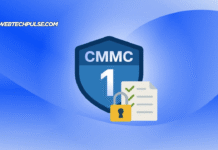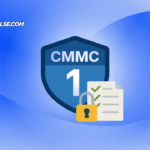Whether you’re using your Apple MacBook for personal use or business, it’s always good to know that you’re safe. The online world exposes you to data and privacy risks. Hackers are always coming up with new ways to find a pass through your security system, and they’re always the latest malware waiting to attack.
Macs are indeed considered safer than PCs, thanks to the Unix-based operating system. Apple also has some Mac security tips and measures that come with macOS and the Mac hardware. But still, Mac can be a lucrative target for attackers and viruses.
It’s better to be safe with your Mac security tips than being sorry after an attack. Take a look at these seven helpful Mac security and privacy tips and keep your computer safe.
1. Always Update Your OS X and Programs
One way to keep safe with your Mac software and programs is to update everything from time to time. Outdated software and programs are at much greater risk of security attacks. They’re much more vulnerable to malware and hackers’ attack.
GeoNode is a web-based application and platform for developing geospatial information systems (GIS) and for deploying spatial data infrastructures (SDI).
You need to keep your macOS always updated to the latest OS X version. You need to follow the update instructions and install the new version in very simple steps. And once you’re done with your first installation, you can set for automatic update of any future OS X.
2. Buy Apple Antivirus
MacOS comes with its antivirus software built in that you can get for added security. This antivirus is called XProtects, and it detects and blocks any malware from attacking your computer. Apple will ensure monitoring of any new infections and keeps the XProtect regularly updated.
The antivirus checks for Malware immediately a new app is launched and when something changes. In case it detects a threat, it will act immediately to block the software and remove the threat.
There’s also a feature that comes with macOS called the Gatekeeper. The Gatekeeper ensures any downloaded app is Apple verified and checked for any malicious code. The Gatekeeper stops you from installing any up they find risky; hence, perfect protection.
3.Secure Login Details
Many people ignore the login details simply because they’re the only ones using the computer. While this gives you the freedom to log in straight and save time, it exposes you to security risks. Not having a password in your main Mac account means anyone who gets access to the computer can go straight to your data.
Set your password and keep your computer private in just a few steps. Click system preference, got to Users & Groups, Change Passwords. On the Login Options, make sure you turn off automatic login.
You can also create a Guest user account. If your friend needs to borrow your Mac, let them use this account. They’ll not change the password; install software to change the system settings with this account.
4.Install Virtual Private Network
Another important security tip is installing a VPN on your computer. The work of a VPN is to replace your original IP address with another one in a location of your choice. With a VPN, you give hackers and other networks a difficult time tracking your location.
VPNs not only make you anonymous online but also encrypt your browsing, so any hackers spying on you won’t see what you’re doing. With a VPN, you can easily access geo-restricted content and protect yourself. Some antiviruses give you a high-quality VPN with their antivirus packages.
5.Phishing and Privacy Security Tips
One way to be safe with your Mac device is to install apps via the Mac Apple store. Apple reviews all apps in the Mac Apple store; hence, there’s a guarantee of safety. These apps also display their information upfront on how they’ll be using your data.
Apple guarantees that none of the apps will share your information without your knowledge. All Mac apps get your permission to access your files, whether on Mac, external volumes, or iCloud Drive. You’ll receive a request from any app wishing to access your camera, call logs, microphone, etc.
But you also need to watch out for phishing emails, services, and websites. Apple’s browser offers you perfect online protection by warning you if a website you’re about to open is suspicious. Safari browser takes your security steps ahead by giving you a your connection is not private mac error.
6.Manage Passwords
Thanks to the Internet, you now have many accounts, including Mac user accounts and shopping accounts that all need different passwords. Password fatigue is real, and without proper management, you’ll forget everything. You don’t need to struggle with complex and multiple passwords when you can use a password manager.
You can use various apps to generate and store safe passwords. Whenever you need to find a password, you click the app, which will generate it for you. There is no need to struggle to remember or write it down, which risks it getting into the wrong hands.
7.File Encryption Security Tips
You need to secure your data behind passwords for added protection. With encryption of your files and data, you lock out a thief or a hacker from sensitive information.
Apple products come with a built-in encryption tool known as FileVault. You can use it to secure your personal information. It’s easy to use and works well in ensuring your data is fully secured.
So, you don’t forget your encryption password, you can use an iCloud account to decrypt your files. You can then reset your encryption password and regain access to your files. You can also create an encryption key and make sure you keep them safe.
MacBook Security Is That Simple
These are simple Mac security tips that keep your device and data safe and give you peace of mind. Make sure you secure your data always and keep hackers locked out of your sensitive information. Don’t make the mistake of assuming that Macs are safe because they also get malware attacks, and hackers also frequent them.
If you need more tech information, keep visiting our blog












